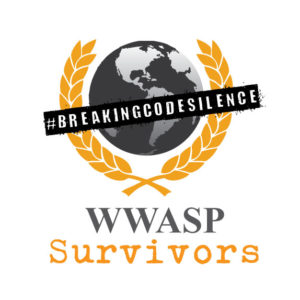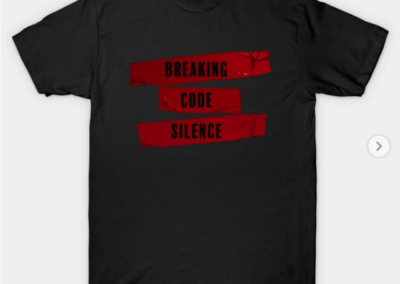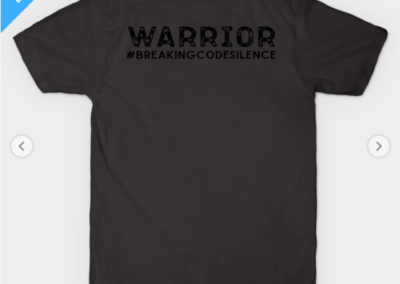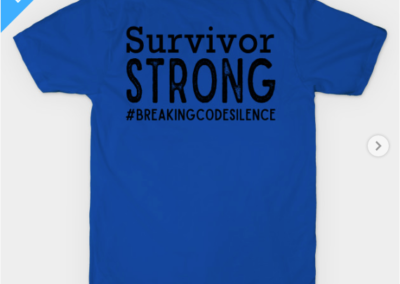In this post, we will go over the testimony of Gary LaChapelle who was an unlicensed counselor and a family representative at Midwest Academy. We will link the full testimony at the bottom under our highlights.
How Gary presents his education initially:
Q. What do you do for a living?
A. Right now I’m a real estate agent, but I’m also a substance abuse counselor and will be going back to North Carolina in January to Camp Lejeune.
Q. What is your education?
A. I have an associate’s degree, a bachelor’s degree, and a master’s degree.
Q. What is your AA in?
A. Chemical Dependency, and my bachelor’s and master’s in Psychology.
Q. And are you a licensed therapist?
A. I have a certificate for chemical dependency and that’s–so I’m licensed as a chemical dependency counselor, yes.
Q. But you are a licensed therapist as a result of your degrees in psychology?
A. I have not applied for that, no.
Q. And what would that entail?
A. Money.
Q. Would you have received the same training as someone who was a licensed therapist?
A. I believe so, yes.
Upon cross-examination, he admits he received his degree from the same school as Layani which was an online school which is not regionally accredited.
Q. Let’s go back through your education a little bit. What is your degree in?
A. Chemical Dependency is my associate’s, and then my bachelor’s and master’s is in Psychology.
Q. And where did you get your associate’s degree?
A. Southeastern Community College in Burlington.
Q. And then where did you get your bachelor’s degree?
A. California Coastal. It’s in Santa Ana, California.
Q. That’s on online?
A. It’s both an online and on campus.
Q. Layani Trane testified yesterday that she received her degree from there, too. Were you taking classes at the same time?
A. No. I believe I may have been taking it before her.
Q. And you say California Coastal, that was your bachelor’s and your master’s?
A. Correct.
Q. So when you started at Midwest Academy part time in 2004, did you just have your two-year degree?
A. Correct.
Q. So once you started Midwest Academy, you started this online course with California Coastal; correct?
A. Correct.
Q. Did Ben or Layani give you the information for that school?
A. No. I believe I gave it to them.
Q. And so online you received a degree for a bachelor’s in what?
A. Psychology.
Q. And your master’s in what?
A. Psychology.
Q. Did you do any practicums?
A. I did practicum with Mike Davis.
Q. What does that mean?
A. Which means I did so many hours with him, as far as he was my supervisor.
Q. Did you do an internship or other practicum hours with anyone outside of Midwest Academy?
A. For my–
Q. For your degree?
A. For my associate’s degree I did.
Q. I’m talking about —
A. But my other degree, no. And I didn’t have to.
Q. If you want to be licensed as a therapist, you do have to put in a certain amount of hours underneath another licensed–
A. That’s correct. But I didn’t get
it to be licensed as an independent
licensee.
Q. Correct. But what I’m saying is to be a licensed therapist, you have to put in so many hours —
A. You have to do a practicum, yes, ma’am.
Q. –underneath another licensed therapist?
A. Correct.
Q. And you chose not to do that. You chose not to be licensed; correct?
A. Correct.
Q. And you said you were a mandatory child abuse reporter when you started working there, but Midwest Academy didn’t provide any training for child abuse reporting; correct, that you’re aware?
A. Not that I’m aware of. They didn’t do it for me, no, but I had already had it.
Q. And you left the academy from May 2015 to January of 2016; correct?
A. Yes.
He provided counseling individually to the students.
Q. When did you work for Midwest Academy?
A. I started part time in December of 2004.
Q. 2004?
A. Yes.
Q. And what was your position?
A. I was a substance abuse counselor. I would come in two days a week and have what we called chemical dependency groups, group counseling.
Q. And counseling?
A. Well, group counseling. All I did was group counseling at that time.
Q. Was group counseling something that was fairly common at MWA?
A. I did it. I mean, I guess I’m not sure. Maybe I don’t understand the question.
Q. Well, it wasn’t–
A. I did it weekly, or twice a week.
Q. And did you also do individual counseling?
A. Not when I first started. I was only working part time, because I worked at another–I worked at a mental health center in Illinois also ful l time.
Q. At some point did your position evolve?
A. It did. I got hired on full time and so I quit my job in Illinois and came over to Midwest Academy full time.
Students would not work on their substance abuse issues until they were level 3 – a process that could take months or even a full year to do depending on the child.
Q. How did a student come to be on your caseload?
A. As a–
Q. As a counselor.
A. As a counselor, it was those that came into Midwest Academy who had substance abuse issues. What my thought was when I first started full time was that I didn’t really want to see any of the kids unless they were at Level 3, because once they hit Level 3, they were more apt to be in a better place and a better mindset. So once they hit Level 3, if they had a substance abuse issue, then I would see them.
Q. So what I’m interpreting what you’re saying is that at Level 1 and Level 2, it may have been better t o let them concentrate on the program, and then by Level 3 they were in a position to address some of those deeper issues?
A. Yes, ma’am.
Midwest Academy did pick up another chemical dependency counselor who was not licensed either.
Q. Were you the only chemical dependency counselor?
A. I was for a very long time. And then we had an individual –and I’m not even sure. I think it may have been 2014 maybe. She went through SCC at the community college in Burlington, and I — she needed 1,000 hours, so I assisted her and she worked with me for 1,000 hours.
Q. But for a good number of years, you would have been the only chemical dependency counselor?
A. Yes, ma’am.
Q. And you were the one that made the decision that those issues would not be addressed until the student achieved Level 3?
A. That was what I brought up, and then that was what was approved, yes, ma’am.
Q. When you say you brought it up, who did you bring it up to?
A. When I originally got hired on full time, Mr. Ben hired me. And that was one of the things that I said to him, because he had asked me my thoughts. And obviously, I hadn’t worked there full time, but I had worked there part time and had talked to, you know, a lot of the kids that were in the group. And based on things that I had heard, that it took a while for them to really understand why their parents sent them there and stuff like that, I felt that maybe –and I hate to use the word waste –but I thought it may have been more of a waste doing them at Level 1 and doing them at Level 2 until they hit Level 3, because at Level 3 they were more focused.
Gary provided therapy for students on a variety of issues – not limited to just substance abuse. He stated in his original deposition that he answered to Michael Davis who answered to Ben Trane. Ben Trane was the top of the pyramid at Midwest Academy.
Q. When you started working there full time as a therapist to give therapy to students, again, you weren’t licensed to do that; correct?
A. I was giving counseling as a substance abuse counselor and, yes, I was licensed for that.
Q. For the substance abuse?
A. And that’s what I was giving.
Q. But you met with students on other issues; correct?
A. I met with students on substance abuse issues and other issues if those came up, that’s correct. But I’m also a qualified mental health provider, which means I can actually give counseling as long as my supervisor signs off on it.
Q. And Mike Davis signed off on everything that you did?
A. Mike Davis signed off on it.
Q. And in fact, we’ve met prior because we had a deposition; correct?
A. Yes, ma’am.
Q. And during that deposition, we discussed your position there, and you had stated that basically you were middle management?
A. That’s fair to say.
Q. You answered to Mike Davis. Mike Davis answered to Ben Trane; correct?
A. That’s correct.
Q. And Ben Trane was the final say on everything?
A. I would assume so. He was the owner. But I can’t say that for a fact. I don’t know.
Q. Well, you stated during your deposition that he was the top of the pyramid?
A. He was. He was the owner.
Gary admits that there was always a second person present in all therapy sessions. He admits it was not a norm in the industry. Then stated that sometimes it would be just sitting outside a classroom so they could be in eyesight of others.
Q. Would these approximately 16 kids that you were assigned to be counselor for, how often would you meet on a regular basis for counseling sessions?
A. Weekly.
Q. And the students always had another person with them; correct?
A. With me they did.
Q. And in fact, I think you said that staff tried their hardest to make sure that you weren’t alone with a student?
A. Correct.
Q. Do you think that in that situation that sometimes it may have been hard for students to talk about personal things, having another student in the room?
A. I would say that’s a fair statement. How ever, when that occurred, then we would talk sometimes at the round table, which was right outside of the classroom. And there was a staff member that sat inside the classroom but couldn’t necessarily hear us but could see us. And at that point, I would do just that one student.
Q. And having a second person in the room for counseling sessions is not so much normal in the profession, is it?
A. No. I didn’t do that in Carthage, where I worked in Carthage.
Gary admits that male family reps were usually paired with boys and girls would be paired with female family reps.
Q. When you were a family rep, did you have any females on your caseload?
A. I did not.
Q. Usually–there was sometimes an exception, but usually the male family reps had just male students?
A. Correct.
In describing Ben’s role in the facility, he describes how Ben did seminars for parents for a short amount of time but Gary took over the seminars. Gary claimed that Ben Trane was not considered part of the clinical staff.
A. He did seminars for the parents at one point. I don’t know how long it was, maybe for six months, maybe, seven months. And then actually I took it over and did the seminars for both the parents and the students. And I did it for a couple of years, and then someone else took it over because that was just too much for me to do, plus everything else.
Q. And he was not considered part of the clinical staff?
A. Not as far as I know
He claims many times during his testimony that Ben didn’t make the clinical decisions and that he went to the clinical team and Michael Davis to discuss changes in. In cross examination, he discussed that he spole to Ben Trane about the students having to be level 3 to get drug counseling and that Ben Trane approved that suggestion.
Q. You also testified earlier that you had had a conversation with him about the Level 3s, how you thought maybe it would be better if kids waited until Level 3 to get drug counseling; is that right?
A. Correct.
Q. And you had suggested that that would be a good idea to do that?
A. That’s correct.
Q. And the Defendant approved that suggestion and that happened; correct?
A. Correct
Gary did not have a lot of control when a student is placed in OSS. Admits that a lot of small infractions could lead a child being placed in OSS.
Q. During your period at Midwest Academy, did you become familiar with what’s known as the OSS rooms?
A. Yes, ma’am.
Q. What were they?
A. They were Out-of-School Suspension. They were used as timeout rooms. They were–kids were put in there when they were attacking other kids or attacking other staff. They were –kids got put in there because they were disrupting school.
Q. Did they ever go in there just for continually violating minor infractions?
A. They wouldn’t go in there for violating minor infractions. They would go in there– I guess an example would be if an individual would have 20 or 25 infractions within a couple hour period, that’s disrupting the rest of the kids, so they would go in there. And that was up to the shift leader. He was in charge.
Q. So as a family rep and/or a counselor, you probably didn’t have a tremendous amount of control over who was in OSS?
A. I didn’t have control — Are you asking me how they got put in there?
Q. And I realize I just asked a really bad question. You wouldn’t have had a lot of input as far as when a student was placed in OSS?
A. No, ma’am. I would be notified when they got placed OSS.
Gary claims that he would try to get his own students out of OSS by the end of the day if he could and that he would go into OSS at least three times a day.
Q. Did you have any say-so in how long a student would stay in OSS?
A. I would say I did if they were my students.
Q. What kind of input would you have?
A. Well, I would try–A, I would try to find out exactly what they did and what they didn’t do; and, then more so than not I would go in and talk to the student, and as their family rep, most of the time which was not necessarily policy, but I would–specifically one student I’m talking about–I would try to pull him out at the end of the day. And then more so than not, when I would get home I’d get a call from the shift leader saying he went back in there.
Q. So when you left each night, it was your goal that your students would no longer be in OSS that day?
A. My goal was for my students never to be in OSS, yes, ma’am.
Q. When you had students in OSS, you said that you would try to get them out by the end of the day. How many times would you go into OSS if you had a student that had been placed there?
A. Well, it didn’t matter if I had a student or not. I went into OSS at least
three times a day. I went in every morning when I got there. That was the first thing I did. Before I even went to my office, I would go to OSS. And I would say good morning to anybody that was in there, and I would chat with each one of them for a few minutes.
Per Gary’s testimony, he never was concerned for the children’s safety in OSS. He stated that a child tried to hang himself but dismissed that incident that the child doing it “just for show.”
Q. Did you ever have occasion where you became concerned about the safety of any of the boys that you were visiting in OSS?
A. I didn’t in the sense where –I mean, there were kids that were in there and sometimes the doors were closed because they were trying to attack people and they were trying to do things that they shouldn’t have been doing. But I think with who I am and where I came from, I would–95 percent of the time, I would be able to open that door and go in and sit down with those kids and shut the door behind me and talk to them. So I never was afraid for my safety, if that’s what you’re asking.
Q. Well, did you ever become concerned about their safety?
A. There were times that we were concerned about their safety. I mean, there would be times that there would be kids who were acting up and they would rip their shirt off an d they would–one kid in particular would rip his shirt off and put it around his neck, but he wouldn’t put it tight enough to really do anything. He was doing it just for –I think he was doing it just for show.
He testifies that children always had a lot of contact with people while they were in OSS.
Q. Would it be fair to say that there was a good amount of contact between staff and the students in OSS?
A. I would think so. And not only staff, there were also upper levels that were there, or Level 3s and above, that had the opportunity to talk to the kids too.
Gary testifies that OSS is stark, small and brightly lit but it was alright because it existed to protect the child or stop a child from disrupting the program.
Q. Would it be fair to say that the OSS rooms were not a pleasant place to be?
A. That would be a fair statement.
Q. They were pretty stark?
A. Yes, ma’am.
Q. Painted bright white with fluorescent lights and fairly small?
A. (The witness nodded in the affirmative.)
Q. Is that a yes?
A. Yes. I was trying to remember if it had fluorescent lights. I don’t remember.
Q. What was your understanding of the purpose of the OSS rooms ?
A. The OSS rooms, my understanding is, what it was was to really protect the student. I mean, the student as a whole — again, kids didn’t go into OSS just because we wanted to put kids in OSS. Kids went into OSS because a couple different things. They were disrupting the family, meaning the kids were in school and you’d have a kid disrupting the whole classroom, and they would be doing it more than, you know, one or two times. You would have a student go to OSS because they were attacking another student. You would have a student go to OSS because they were attacking staff, hitting staff, breaking a staff’s nose.
Per Gary, only a small percentage of students would go to OSS. He testifies that in order to be let out, they would have to sit there for 24 hours. This directly contradicts Layani’s testimony where she stated there was not a 24 hour rule.
Q. So again, it was a small percentage who spent the bulk of their time there?
A. Yes, ma’am.
Q. And was the reason –at least in your opinion, was the reason why because it was such a stark kind of unfriendly place?
A. I believe that’s correct.
Q. Once the students were in OSS, what were they required to do?
A. They were to sit and follow directions. They were supposed to be in there for twenty -four hours. If they followed directions, they would get out the next day.
Gary testifies that some children would spend days in OSS but they only did it because they were testing limits.
Q. Did students always stay in there for the full twenty-four hours?
A. I would say most of them did, and it was just twenty-four hours. One of my students I would pull out before that, which I probably shouldn’t have, but I did. And there was some that –there was some I would say that probably went over a little, more than twenty -four hours. There were probably a couple that went over, you know, forty -eight hours.
Q. And why would a student stay in there for forty-eight hours?
A. Because they weren’t following the directions. There were screaming. They were- every time we’d open up the door, they would try to run out. They would try to hit the staff that’s in there. They would try to hit the student staff that was in there. So they would go in there, and there were some kids that say, well, I’m just going to go in there, and we’ll just stay here and we’ll see how long I can stay in here. So sometimes I felt that it was more of a game for some of those kids, because they weren’t — They were doing the same type of stuff that the y were doing at home, and there was no repercussion at home. So our repercussions –one of them was in OSS, and I think their thought was if we holler loud enough, mom and dad used to say, forget it, and we probably would too, but we didn’t.
Q. So they were testing how far they could go?
A. Yes, ma’am.
He also testifies that he didn’t recall a special OSS diet but breakfast might have been different. He claims some children would refuse to eat in OSS but he could not recall one of the victims refusing to eat. Claims he would try to bribe one of the victims with food to bring him out of OSS.
Q. We’ve heard a lot of testimony regarding the food in OSS. Was the food served in OSS different than what was served to the other students?
A. I think at breakfast time, there was like a peanut butter and jelly sandwich and an apple or an orange. But there were many mornings that I would go in with Dxxx, and I would bring him oatmeal. But as far as lunch, my recollection is lunch was the same for people in OSS that it was for anybody else, even staff. I mean, we ate lunch in there. We would get that. Now, they would not–if they were in OSS, I mean, obviously there was some restrictions, i.e., they wouldn’t have the condiments. So for instance, if they had a salad they wouldn’t have any salad dressing on it if they had a salad or something like that.
Q. Did some kids choose not to eat when they were in OSS?
A. I suppose.
Q. If you don’t know, that’s fine.
A. Yeah, I don’t know.
Q. Were there occasions sometimes where students would throw their food around?
A. Yes.
Q. And would this be one of those things that might keep them in OSS longer than the twenty -four hours?
A. Yes.
Q. Did you ever know Dxxx to do that?
A. I don’t recall Dxxx ever doing that. Now, I will say that I was not in there every single time he had food, but that was never brought up to me, and he never responded that to me. He never said that to me
A. I don’t recall Dxxx ever doing that. Now, I will say that I was not in there every single time he had food, but that was never brought up to me, and he never responded that to me. He never said that to me.
Q. And you indicated that sometimes you would bring him food outside of what he would normally get in OSS. What was the purpose of doing that?
A. To get him out of OSS. To show him, you know, you’d be eating oatmeal this morning if you were out of OSS.
Q. Was oatmeal a common breakfast food?
A. I think it was twice a week maybe.
Q. So you were essentially trying to bribe him out of OSS?
A. Yes. That’s a true statement. I think I became very close with Dxxx. Dxxx is a great kid. He’s a great kid today. Him and I are still in contact. So I mean, he’s a good kid. He just didn’t get it, because he didn’t want to get it. I talked to him some months ago, and I mean he’s had timeouts at school.
Gary testifies that he did remember the two victims having a hard time with OSS. One of the victims was on his caseload and the other he did not have much contact with. He claims he only had conversations with Ben in passing about the student on his own caseload.
Q. You described Bxxxxxx and Dxxx as the two students that you distinctly remember as struggling in OSS?
A. Right.
Q. Did you ever have conversations with Mr. Trane about those two particular students?
A. I never had a discussion with him about Bxxxxxx. I think maybe in passing I would talk to him about Dxxx and letting him know what I was doing with him. But nothing –I never had any discussion with Ben about what he could do or what we should do. I would just, you know, in passing if I saw him, I would tell him what I was doing with my kids. In passing, if I saw other reps, I would tell them the same thing, this is what I’m doing; this hasn’t worked, you know. So no, I never had a discussion with Ben about what we should and what we shouldn’t do with Dxxx or Bxxxxxx.
According to Gary Lachapelle’s testimony, the victim on his caseload was one of the youngest children there and would get 50+ consequences in a twenty minute period. He spent the majority of his time in OSS while there. Gary testified that he would check on thevictim often.
Q. Dxxx was on your caseload?
A. Correct.
Q. You would agree he had a pretty tough time there?
A. I would agree with that.
Q. He was one of the youngest kids there?
A. I think so.
Q. And you’ve said before that sometimes in a twenty-minute time period, Dxxx would get 50 consequences?
A. Correct.
Q. So in twenty minutes, he would be written up 50 times for doing something wrong?
A. Correct.
Q. And a lot of times that’s how he ended up in OSS; correct?
A. Correct.
Q. The boys tended to be in OSS more than the girls; correct?
A. Correct. We had more boys than
girls.
Q. You said you would check in every day at OSS?
A. Correct.
Q. And Dxxx was there a lot?
A. He was there a fair share, yes.
Getting a large amount of small consequences was the reason why the victim would sometimes go to OSS.
Q. And that happened too, that kids would go in there, like you said, maybe just for a timeout because they stepped out of line, they were talking in class, they were breaking smaller rules, and then they’d go into OSS and the behavior would just escalate. That happened with Dxxx a lot, didn’t it?
A. It did. Not a lot. It did. But it wasn’t that he went in there and said, oh, my God, I’m in OSS, let me do this. It would be the other kids egging Dxxx on; Dxxx do this, Dxxx do this, Dxxx do this. And Dxxx would say, okay, I will do that. And that’s what happened.
Q. And Dxxx made his choices and then he stayed in longer?
A. Dxxx made his choices and he would stay in until I got him out or he came out the next day more so than not.
Gary testified that the victim was immature, a class clown, and really young. Gary states that he would bring school work to OSS with his.
Q. And you’ve alluded a couple of times to a couple of students that maybe spent more time there than you would have liked?
A. Yes, ma’am.
Q. Who were those students?
A. One of them was Dxxx, who was on my caseload, the other one was a Bxxxxxx. Dxxx–and I can speak more so on Dxxx, because Bxxxxxx was not my student. I would chat with him every now and then when I would go in there because he wouldn’t want to talk to me. He would only want to talk to Mr. Mike Davis, or every now and then he would talk to Miss Jane. But if he was in there and I went in there, he would say, I don’t want to talk to you. So I would say my good mornings, my good afternoons, my good evenings, but that was about the extent of that with him. But with Dxxx, I think Dxxx and I had a very good relationship. I think Dxxx and I, his mother and I, we used to chat quite a bit. And I felt that we had a good relationship there too. My concern with Dxxx was that he came to our school because he basically got kicked out of school. But that’s what he was doing, and that’s why he got put in OSS most of the time because he didn’t want to do school, and he would disrupt everything. And so I actually had paper school printed off and brought that into OSS for him on different occasions. And on one occasion, I said you have to do this unit, or I’m not going to let you out. And he tried me for about four or five hours. And he said, you can’t do that, you won’t do that. And I said, but I can, and I will call your mother. But then he ended up doing it, so I took him out. But he was just one of those that — I mean to be honest, he was very immature. And I feel like he was the class clown.
He would do anything that anybody told him to do.
Q. And is it fair to say he struggled a lot with the program?
A. That’s a true statement, yes.
In cross examination, Gary testified that the victim was one of the children who would tied things around his neck but Gary felt it was just a game.
Q. And you stated earlier that sometimes when kids would tie things around their neck, you felt it was a game?
A. I said for Dxxx.
Q. So when Dxxx would tie things around his neck, you felt it was a game?
A. Correct. Because when I would go in–because he would allow me to go in and take it off. And I could put my whole fist, you know, four or five fingers inside the knot, so there was nothing constricting him
In his testimony, Gary stated that he felt one of the victims was obese when he started at the school and that the victim looked like he never saw a gym. This was to justify the victim’s weight loss of 30+ pounds. On cross examination, the prosecutor brings up the fact that the victim played sports, football and baseball prior to coming to the school and that Gary isn’t qualified to determine what is healthy weight loss.
Q. And you used the word “fat” for Dxxx?
A. Right.
Q. I’m showing you State’s Exhibit 1. That’s Dxxx; right?
A. Correct.
Q. And we’ve heard testimony that this was Dxxx shortly before he came to the academy and that he did play sports, football and baseball and things like that. Did you know that?
A. I did know that. But I also know he wasn’t doing gym at school.
Q. And did you know — You said that, in your opinion, he needed to lose weight?
A. As I do also.
Q. You’re not a doctor?
A. Nope.
Q. So you really can’t say whether it’s healthy for a 12 -year-old growing boy to lose 10 to 20 pounds
A. That’s correct. I said in my opinion. I didn ’t say– That’s correct. I’m not a doctor.
During cross examination, the prosecutor also points out that since the victim was in OSS for mor than half his time in Midwest Academy, it would have been hard for the victim to go to the gym every day.
Q. Now, you worked at — Oh, wait a minute. I wanted to ask one more thing on that. You had told –when we talked in your deposition, you had never brought up this story about Dxxx and the gym and how you think he lost weight because he was exercising more in the gym. So is that why you–
A. I did not bring it up because you didn’t ask me.
Q. Well, we talked about his weight loss.
A. You asked me if he lost some weight, and I said yes.
Q. And today you’re saying you feel it’s because he started exercising more in the gym?
A. I do.
Q. Now, you’re aware that Dxxx spent approximately 50 percent of his time in OSS?
A. Okay.
Q. Do you have any reason to dispute that?
A. No.
Q. So if it’s 50 percent of his time in OSS, he’s only in the gym 50 percent of the time; correct?
A. Not necessarily, because it depends on when he went in there. Because a lot of times he would –a lot of times he would go in either in the afternoon or he would go in sometimes in the morning. So that may be a true statement. I don’t know.
Gary testifies that he spoke to the victims’ mother of putting him on a special diet that consisted of the child’s most hated foods while he was in OSS. Food was used as a punishment and an incentive.
Q. Did you talk to [VICTIMS MOTHER] about special meals?
A. [VICTIMS MOTHER] and I talked about special meals, and she basically told me that that wasn’t something she wanted to do. So I never authorized anybody to feed him special meals.
Q. But you asked her?
A. I did.
Q. And when you asked her, you wanted to know what food did Dxxx hate?
A. Correct.
Q. And the reason was, is because with special meals you would feed kids the foods that they hated; correct?
A. That’s correct.
Q. And again, that was a consequence. That was to teach them these life lessons of, if you do as you’re told then —
A. No. It was to get them out of OSS.
Q. To give them food that they hated?
A. If you don’t like something — And I guess I’ll say like, again, if it were me, would I want to be OSS? No. I would sit there and do what I had to do to get out of OSS. So again, you’re focusing in on special meals that never occurred with xxx.
Q. I understand that. But you asked about them?
A. I did.
Q. And had [VICTIMS MOTHER] approved it, you obviously would have been fine giving food that he hated?
A. Not necessarily, because that would have been something that I would have been able to say, Dxxx, this could happen if you continue to choose what you’re choosing in OSS. So I can’t sit here and say that I would have given it to him. I don’t know.
Q. But if Dxxx had continued to choose to do what he was doing in OSS, and you had already threatened him with feedin g him–and I think it was tuna that he hated; is that right?
A. I don’t even remember. I have no reason believe that that’s not a true statement.
Q. But had you already threatened him with that, that Dxxx, if you don’t do what you’re supposed to do, you ’re going to get this meal, you would have had to follow through with that; correct?
Q. I should have followed through with that. I can’t sit here and say I would have followed through with it. Yes, That’s correct.
Q. And some kids did get special meals in OSS; correct?
A. I can’t answer that because I was not in there when they did. They may have. I guess I don’t know.
Gary testifies that he never worried about psychologically harming the victim with so much time in OSS and that he liked to go in there to avoid school. Claimed it’s what the victim wanted.
Q. During the times that you spent in OSS, and it sounds like you spent a lot of time with Dxxx, did you ever feel like his time in OSS was doing him psychological harm?
A. No.
Q. Why not?
A. Because again, I think most of the times that he was in there he was in there to avoid things, you know . And unfortunately, when you had a group of kids–for instance, him trying to avoid school, I couldn’t just leave him in school, or they couldn’t just leave him in school because that’s going to disrupt everybody else. So we would bring him to OSS. And like I said, I had them print off paper homework –or paper school for him and bring them in there. He would go in there as if it was that he got to do what he wanted. So I don’t feel there were any psychological issues with him because he was never –he never really was alone in there.
Q. There was always you who spent a great deal of time with him?
A. But there were also kids, and there were also staff, the staff member that was in there. But I know that –because what I didn’t say earlier was the student while in OSS can ask the staff who is in OSS if they can talk to the kid staff. And if they’re doing what they’re supposed to be doing, they can talk to the kid staff. If they’re not doing what they’re supposed to be doing, 9 out of 10 times the staf f would say, you know, just sit there for about ten, fifteen minutes calm, and you can talk to the staff or you can talk to the kid.
Gary again reiterates that he believed that it was the victim’s choice to be in OSS and if he would just “follow the rules,” he could chose to be out. This is after he already testified that the child in question was one of the youngest in the school, immature and, as Gary put it, a “class clown.” Midwest Academy expected small immature children to sit in the same position quietly for 24 hours as a punishment and if they made any mistake during those 24 hours, they were told they were choosing this.
Q. The way that you talked earlier, you seemed to–I got the impression that you felt that Dxxx was in OSS the majority of the time because he chose to.
A. And I agree with that statement, yes.
Q. Because had Dxxx just followed the rules, then he wouldn’t have been in OSS; correct?
A. That’s correct. But my concern here is that when you say rules and stuff that they have to memorize and everything else like that, they were more so common rules of everyday rules. You know, I mean, yeah there was some that were not, but most of them were, you know, when you’re in school you don’t talk; when you’re, you know–when you’re walking in line from Point A to Point B, you don’t talk, you don’t do this. And he constantly did those things. And he did those things to get a rise out of the other boys.
Q. It was purposeful action on his part?
A. More so than not, yes, ma’am.
Q. Willful intent on his part?
A. I believe so.
Q. Now, you also said that kids did have to stay in there a minimum of twenty – four hours; correct?
A. Correct.
Gary admits that some children would be in OSS for days but the clinical team would meet and assess after awhile.
Q. Now, when you were talking about the twenty-four hour minimum, you said that, yeah, some kids would stay longer; correct?
A. Correct.
Q. You were aware that some kids would stay in for days?
A. Define days.
Q. Two days?
A. Correct.
Q. Four days?
A. There may have been an occasion of four days, but we as a therapy group, if they were in there more than forty-eight hours, we would discuss that.
Q. I understand that you would discuss that.
A. And more so than not, we would take them out.
Q. Have you sat down and looked through the OSS records?
A. No.
Q. There were kids that would spend — were you aware of kids that would spend up to a month in there?
A. Not while I was there.
Contradicting Layani’s testimony again, Gary testified that the children would have to sit in structure for 24 hours in order to get out of OSS.
Q. Now, if they stayed in longer than twenty-four hours, that’s because they weren’t following structure; correct?
A. Correct.
Q. And again, that goes back to, you now, if they do what they’re told then they can get out; correct?
A. Correct.
Gary claims in his testimony that kids would be screaming, hitting, and out of control for days nonstop.
Q. You talked about that if they stayed in there longer, it was for screaming, hitting, out of control, those types of things?
A. Yes.
Q. Now, you’re not saying that a child was in the OSS room for two days straight screaming and hitting and out of control, are you?
A. Yes. There were a couple occasions that, yeah, I would say that that is a factual statement.
Q. Just nonstop?
A. Nonstop.
Testifies the Midwest Academy isn’t supposed to be Club Med and attempts to justify OSS more.
Q. Now, if the purpose of OSS is to protect the staff and to calm down the student, once the student is calm, then why the twenty-four hour minimum of structure?
A. Well, it’s just another rule that was in place. And again, it’s like your child is at home, and he breaks the rule, and then he’s good for five minutes, and then you forget about him breaking the rules. So I think we’re looking more at the little pieces like, okay, so they went into OSS–and I’m just going to say it — Midwest Academy was not Club Med. It was not Disneyland. Okay? That was more so than not a last resort for most of these parents. And most of these parents told me that. It was their last resort. And then you talk to the parents when they come in. We had an individual who talked to all the parents. And they said, they asked those different questions, why were they coming; what did they do; what didn’t they do? And it was, they didn’t follow directions; they didn’t do anything that we asked them to do. Can you try to help them out? So then we would ask, well, when you did this, what happened? They would continue until I put my hands up in th air and say, forget it. And then they
would go on and do what they were doing. That’s not what we did. And OSS which was the final point, in my perception –when they went to OSS even for–when you say minor infractions, that minor infractions –somebody is not going to go into OSS for getting one or two Cat 1s. They’re going to get 25 or 30 Cat 1s. And 25 or 30 Cat 1s is disrupting on the people, even if it’s just a Cat 1. So the bottom line is, I hear w hat you’re saying, and I understand what you’re saying, but again, if I put somebody in OSS because they’re disrupting the family, then I take him out ten minutes later because they’re all calm, cool, and collected, in my eyes that didn’t prove anything to them because they can say, well, I can go back in there and I can come out when I don’t want to be. If I don’t want to do gym, I can go do that and then I can calm myself down in ten minutes, and they’ll let me back out. Or when gym is over, I’m good to go. And so they found, and our policy was, if you go in that was your final — that was the final straw, that was the last of the basic consequences. You have to follow through with what you did. You did it; you have to pay the consequence.
In a revealing moment, Gary testifies that they used OSS as a punishment and that the 24 hours of sitting in structure teaches the child a less because “that’s society.”
Q. And the consequence is sitting in that room in structure for twenty-four hours?
A. Yes.
Q. So it sounds like the purpose is not just to calm them down, but it’s also to teach them a lesson?
A. That’s a fair statement but — Yes. For them to gain an understanding of what they can and what they can’t do. And that’s society.
According to Gary, he never spoke to or knew about the sexual activity between the boys of the Pride famaily. He states that he stepped away from the victim as a therapist. It seems unlikely that he knew nothing about it because he was still the child’s family rep and the victim’s mother testified that she received a call from Gary Lachapelle telling her about what was happening in the Pride family.
Q. So by that time, Dxxx had been placed in the Pride Family; correct?
A. Correct.
Q. And the Pride Family was a group of boys who were struggling at the school?
A. They were a group of boys who were struggling, so we put them in that family so they had the opportunity to gain extra points each day and/or to take away some of the consequences at the end of the night if they wer doing what they were supposed to be doing, correct.
Q. And there were some sexual acts that occurred within that group?
A. That’s what you told me. See that I’m–I’m not truly familiar with that because I wasn’t dealing with them at that time. So all I know is what was told to me.
Q. You were Dxxx’s counselor at the time; correct? Not his family rep, but were you still his counselor?
A. No. Mike Davis was.
Q. So you had totally stepped away from Dxxx?
A. Other than he was still considered on my caseload, but Mike Davis and Mr. Don–Mr. Don was more so of the assistant. Mike Davis ran that family. So basically when the kids went into those families, the family reps had to agree, as did the parents, the parents had to agree for them to go in there. But then the family reps who had those kids had to agree to allow them to start doing –making the phone calls to the parents.
Q. So when did you stop being Dxxx’s counselor and family rep?
A. Well, as I told you in the deposition, I don’t think I ever stopped.
Q. When did you stop having contact with Dxxx? And I understand that you probably saw him at school. But I’m saying, when did you stop having weekly counseling sessions with him? When did you stop making the calls home , those types of things ?
A. Making the calls home, I believe it was in March. Talking to Dxxx, I don’t think I ever stopped talking to Dxxx.
Q. Did you talk to Dxxx about the issues that happened in the Pride Family?
A. No. He never brought that up to me so, no, I did not.
Q. Did anyone counsel with Dxxx about that?
A. I believe Mike Davis did.
Q. But you don’t know?
A. I don’t know.
Gary never thought that Midwest Academy was the wrong plane for the victim on his caseload and did not think he should be placed somewhere else.
Q. Did you ever have concerns that Dxxx probably needed to be placed somewhere other than Midwest Academy ?
A. Not Dxxx, no.
Gary testifies that if he had any concerns about a child in OSS, he would have pulled the child out. He starts that he has never had to call DHS on any of the staff at Midwest Academy
Q. Had you had concerns, what would you have done?
A. I would have pulled the kid out of OSS.
Q. And do you feel that you would have had the authority to do that?
A. Yes, ma’am.
Q. Did you receive–or are you a mandatory–when you were there, were you a mandatory child abuse reporter?
A. Yes, ma’am.
Q. So you understood the requirements for making a call to DHS if you felt a child was in harm’s way?
A. Yes, ma’am. And I did call DHS a couple different times while I was there, not because of–I mean after kids said something to me about what happened at home. So I was mandated to call DHS for them to do what they needed to do.
Q. Did you ever feel the need to call DHS on any of the staff at Midwest Academy?
A. No.
Q. If you had, would you have made that call?
A. Absolutely.
Timing of when Gary worked at the school.
Q. And what was her purpose in being there?
A. Well, I think because she had –I believe she had a bachelor’s or master’s degree in psychology that she had –I think she had a couple of kids on her caseload also, and so she asked if she could come in and be part of the team. Now, she wasn’t there every week. There was some weeks that she wasn’t there.
Q. But Ben wasn’t regularly at those meetings?
A. I don’t recall Ben being at any of those meetings when I was there.
Q. Now, you left Midwest Academy for a period of time, didn’t you?
A. I did. May of 2015 my mother passed away, and so I actually went to Alabama to take care of some stuff.
…….
And then I came back about ten to twelve days before it closed down.
Due to this timing, he didn’t know the sexual abuse victim.
Q. You didn’t know [sexual abuse victim]?
A. No, I did not.
Gary testified that he never conducted body image therapy or hand out sexual surveys. He also was not aware of them.
Q. Did you ever conduct body image therapy?
A. No.
Q. Did you ever hand out sexual surveys to kids?
A. No.
Q. Were you aware of that?
A. No.
Full Gary Lachapelle Testimony












Real estate agent is all about selling yourself before you can close a house. Be a real shame if word got out that this budding agent enjoyed moonlighting as an unlicensed therapist at torture camp.